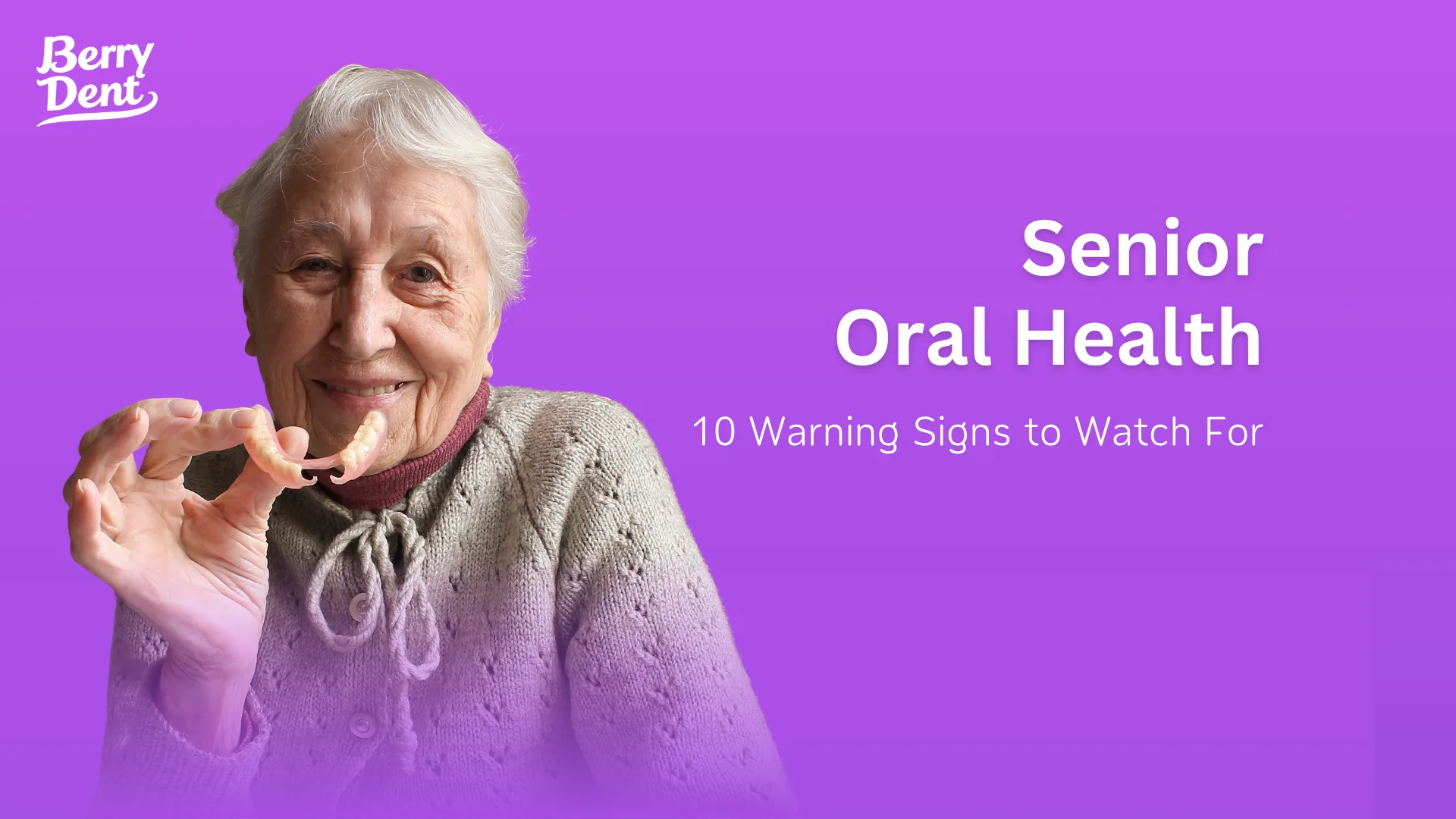As we age, it’s natural for our bodies to change. However, when it comes to oral health, minor symptoms could be warning signs of a larger underlying problem. Whether it’s bleeding gums, sharp tooth sensitivity, or an unusually dry mouth, these symptoms should never be overlooked!
This is because oral health problems in seniors don’t just stay in the mouth; they can affect overall physical health and daily life. Berry Dent invites you to go through this checklist of 10 warning signs together, so you can provide care and prevention in a timely manner.
- Bleeding Gums While Brushing
This is one of the most common early signs. Don’t think it’s normal! Even minor bleeding is a sign of gingivitis, caused by plaque buildup. If left untreated, it can progress to periodontitis, which can destroy the bone supporting your teeth.
- Sharp Tooth Sensitivity to Hot or Cold
Do you feel a sharp pain in your teeth when eating ice cream or drinking hot coffee? This is a sign that your enamel is thinning, or it could be due to receding gums, which exposes the unprotected dentin, making it sensitive to temperature changes.
- Unusually Dry Mouth and Low Saliva
Do you have a dry throat, sticky mouth, or drink water more often than usual? Dry mouth in seniors is a concern because saliva is the natural defense for teeth. When saliva is reduced, the risk of cavities and mouth sores increases significantly.
- Bad Breath, Even After Brushing
If you brush your teeth well but still have bad breath, it could be a sign of a hidden problem like a large cavity, gum disease, trapped food debris, or even a sign of other systemic diseases in your body.
- Loose Teeth
Healthy teeth should not be loose. If you feel your teeth are starting to move or feel loose, this is a dangerous sign indicating that the bone around the tooth root may have been significantly damaged by periodontitis, which requires an immediate visit to the dentist.
- Receding Gums and a Change in Gum Color
Look in the mirror. If you see that your gums have receded, making your teeth look longer, or if the color of your gums has changed from pink to a dark red or swollen appearance, this is another sign of gum disease that should not be ignored.
- Finding Dark Spots or Holes on Your Teeth (Cavities)
The most obvious sign of a cavity is seeing a brown or black spot on your tooth, or sometimes feeling a hole with your tongue. If left untreated, the decay will spread to the tooth’s pulp, causing severe pain.
- Frequent and Slow-Healing Mouth Sores
Occasional canker sores might be normal, but if you get them frequently or have a chronic sore that doesn’t heal within 2 weeks, you should see a doctor for a diagnosis, as it could be a sign of a more serious condition.
- Difficulty or Pain While Chewing
Pain while chewing can be caused by many things, such as cavities, cracked teeth, gum disease, or problems with the jaw joint, all of which directly affect your ability to get the necessary nutrients.
- Loose or Ill-Fitting Dentures
For those who wear dentures, if they start to feel loose, rock, or press on your gums causing pain, it might be because your gum ridges and bone have changed. You should have them readjusted by your dentist, as ill-fitting dentures can make chewing difficult and cause mouth sores.
Basic Care and Prevention
Maintaining good oral health is the key to preventing these problems. Brushing your teeth cleanly twice a day, flossing, and visiting your dentist for a check-up every 6 months are essential.
Additionally, choosing a comprehensive “gum and tooth care toothpaste” like Berry Dent hybrid herbal toothpaste is another simple and effective way to provide initial care. Berry Dent combines the power of herbs that help reduce gum inflammation and bad breath with 1500 ppm fluoride, which excellently helps prevent cavities and reduce sensitivity.


